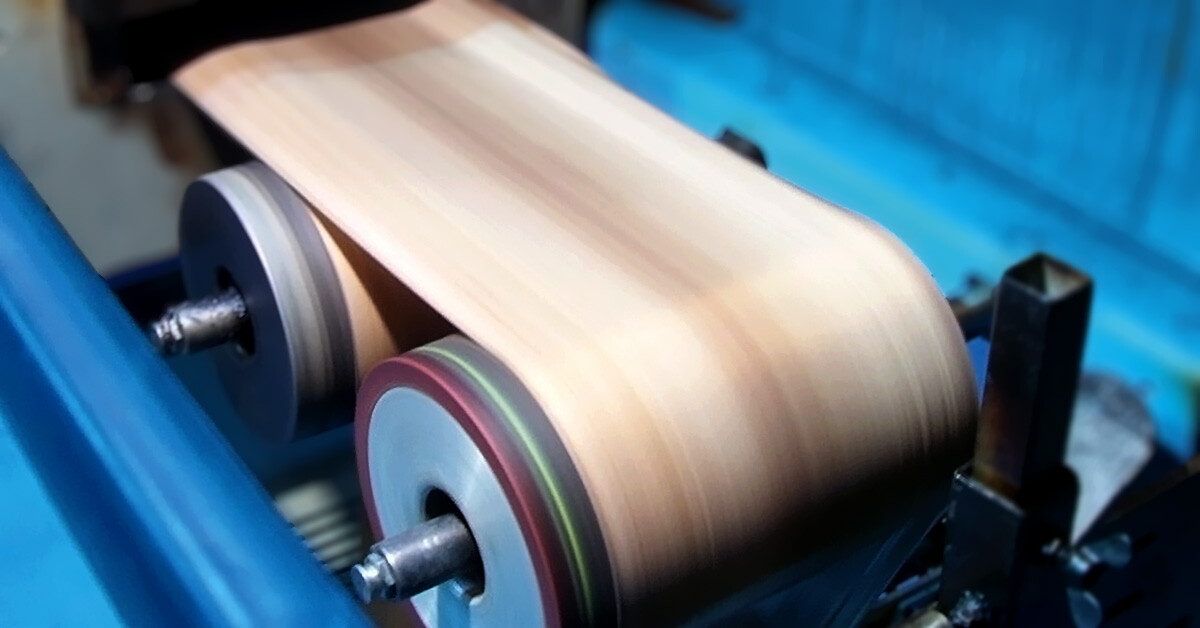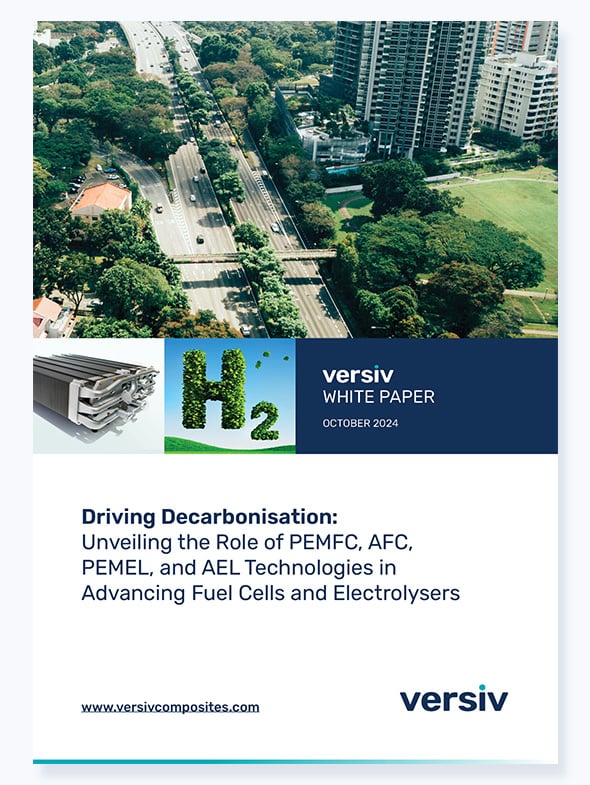

Whether in electronics manufacturing, the automotive sector, or the food industry companies are constantly looking for ways to reduce downtime, streamline production, and improve product quality. According to John McInerney, Product Manager at Versiv Composites, PTFE-coated belts are quietly playing a key role in these efforts, offering advantages that few other materials can match.
Here, PTFE’s ability to resist high temperatures, prevent residue buildup, and maintain a smooth surface helps companies across industry produce more, faster, and with higher quality control.
The non-stick properties and high-temperature resilience of PTFE make it an ideal solution where cleanliness and efficiency are vital. “Take in food processing. If you’re cooking fatty foods, the non-stick surface makes it easy to clean, which reduces maintenance time and keeps production lines moving.”
Why PTFE complements high-temperature applications
What makes PTFE stand out in high-temperature environments? According to McInerney, it’s all about stability and versatility. PTFE-coated belts are non-flammable, fire-resistant, and can operate across an impressive temperature range—from minus 150 degrees to plus 260 degrees Celsius. In industries where heat is a constant factor, this makes PTFE an invaluable tool.
“No other material combines all these properties,” McInerney explains. “Other materials may have one or two of these benefits, but PTFE hast hem all. That’s why it’s so widely used in applications where extreme conditions are the norm.”
Efficiency through innovation: How Versiv maximises PTFE’s potential
At Versiv Composites, innovation is key to maximising the efficiency and durability of PTFE belts. McInerney points out that surface smoothness is a critical factor in wear resistance, one of the key concerns in continuous operation environments. The smoother the belt, the less likely it is to wear down over time.
“We’ve evolved to meet the changing demands of customers, ”McInerney says. “For example, we provide films that act as barriers against various industrial greases. This not only extends the life of the belt but also improves performance.”
The balance of thickness: Energy efficiency vs. performance
One trade-off that often arises with PTFE-coated belts is the balance between thickness and performance. Thicker belts provide more insulation but require more energy to maintain temperature, which can lead to increased operational costs.
“The thicker the belt, the higher the energy requirement, ”says McInerney. “Finding that sweet spot in thickness ensures that performance is maintained without causing unnecessary waste in energy.”
Reducing downtime and improving efficiency
PTFE belts are vital across multiple industries. Take the manufacturing of crumb rubber mats. This involves handling high temperatures and heavy loads while preventing material from sticking. Their non-stick surface ensures consistent production quality, minimises defects, and reduces material waste. These belts also maintain even pressure and temperature during pressing, ensuring mat stability and longevity, leading to defect-free products that require less maintenance.
In high-wear mat industries, such as playgrounds and sports fields, PTFE belts significantly reduce unplanned downtime and boost production efficiency.
Maintaining cleanliness and hygiene in heavy-duty walk-off mat production:
PTFE-coated fabrics also act as press liners, evenly distributing pressure and preventing residue buildup, essential for consistent product quality. Their excellent heat transfer and stability ensure accurate, defect-free vulcanisation, minimising maintenance. PTFE belts are crucial for maintaining cleanliness in environments like offices, public buildings, and food prep areas.
Revolutionising Rubber Processing with PTFE Belting
In rubber profile processing, especially in the automotive sector, PTFE belts are essential for consistent production. They support smooth transport and material release across all stages, from extrusion to curing. With high mechanical stability and resistance to abrasive chemicals, these belts maintain their properties even in harsh conditions.
The non-stick surface of PTFE coated belts removes the need for additional coatings, reducing maintenance time and ensuring high-quality finishes in automotive seals, such as door and window profiles.
Leading the way in sensitive industries
One of the most sensitive industries relying on PTFE technology is electronics manufacturing. PTFE belts play a crucial role in the FPCB lamination processes, ensuring fault-free, roll-to-roll production forhigh-quality circuit boards. “We supply belts that can run continuously without blemishes,” McInerney explains, “and that’s essential for producing top-tier electronics.”
Conclusion: The future of material handling is PTFE-Coated
As industries continue to evolve and place greater demands on efficiency and reliability, PTFE belts are likely to become even more integral to material handling systems. With its unique combination of high-temperature resistance, non-stick properties, and durability, PTFE is helping companies in diverse sectors reduce downtime, improve product quality, and ultimately, boost bottom lines.
Discover how PTFE Belts can elevate your operations
For more information on how our PTFE-coated belts can enhance your industrial processes, visit our Heavy Belting Solutions page. Explore the advantages of advanced material handling solutions tailored to meet the demands of your industry.











